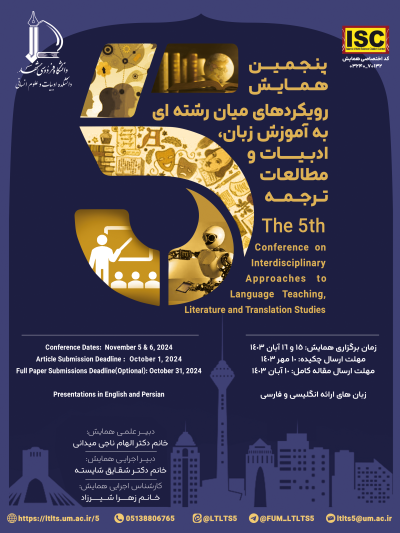0% Complete

نویسندگان :
کلمات کلیدی :
چکیده :
لیست مقالات بایگانی شده
سیامک شهابی
Sara Khazai - Mahmoud Reza Ghorban Sabbagh - Kimia Mahpeikar
Mohammad Bagher Shabanpour
عبدالله حسینی - علی اسودی - زهرا ایزدی - نشاط پوراسلامی
Faranak Kakanaeini
Rajabali Askarzadeh Torghabeh - Mahnoosh Vahdati

